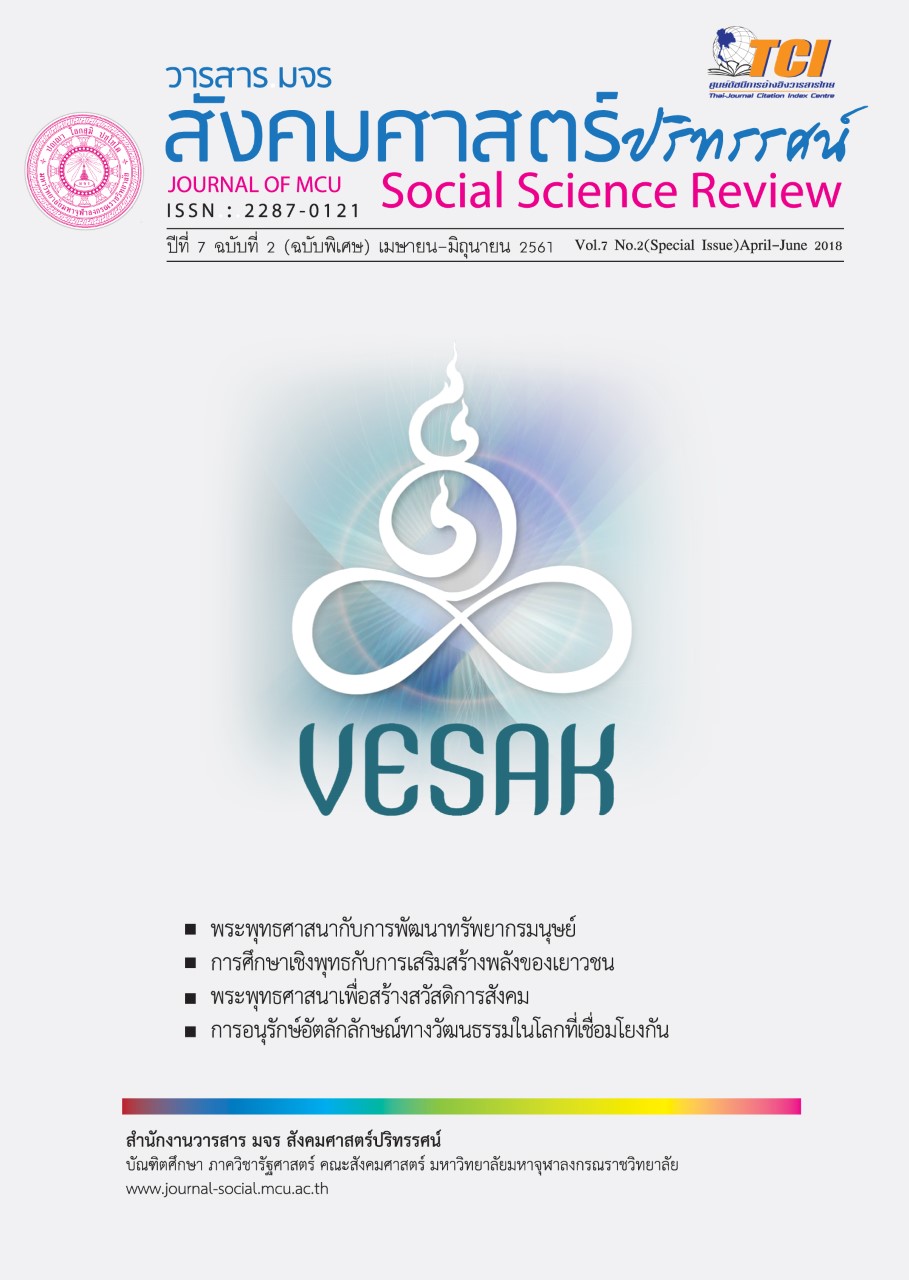TALENT MANAGEMENT IN ORGANIZATION ACCORDING TO THE BUDDHIST PRINCIPLES.
คำสำคัญ:
Talent, organization, management.บทคัดย่อ
การบริหารจัดการคนเก่ง ถือเป็นกระบวนการที่ใช้เป็นเครื่องมือในการพัฒนาองค์การเกิดจากมีแนวคิดหลักในการให้ความสำคัญต่อกลุ่มคนที่มีความสำคัญในการสร้างผลการปฏิบัติงานที่ดีและสร้างเสริมความก้าวหน้าให้แก่องค์การ ซึ่งเป็นกลุ่มบุคคลที่มีอยู่เป็นจำนวนน้อยในองค์การ เป็นการเตรียมความพร้อมเพื่อรับการเปลี่ยนแปลง สร้างความได้เปรียบในการแข่งขันอย่างต่อเนื่อง และสร้างความเติบโตอย่างยั่งยืน ซึ่งเป็นเรื่องที่แต่ละองค์การจะต้องออกแบบให้เหมาะสมกับองค์การของตนเอง ไม่มีสูตรสำเร็จ เป็นกระบวนการในการบริหารทรัพยากรมนุษย์โดยการวิเคราะห์และวางแผนมีความสอดคล้องกันในการหาแหล่งที่มา การกลั่นกรอง การคัดเลือก การนำมาใช้ การพัฒนา และการทำให้คงอยู่ ของทรัพยากรมนุษย์ที่มีศักยภาพสูงและสามารถทำงานได้มีประสิทธิภาพสูงสุด อย่างไรก็ตามแนวทางการบริหารคนเก่งสามารถดำเนินการตามหลักการได้ดังนี้ การระบุคนเก่ง การฝึกอบรมและพัฒนาคนเก่ง การจ่ายค่าตอบแทน การให้รางวัลคนเก่งและการรักษาคนเก่งตามลำดับ
เอกสารอ้างอิง
Frank Benest. (2018). Retaining and Growing Talent : Strategies to Create Organizational “Stickiness”. http://www/frankbenest.com/ICMA%20article.pdf.[january. [January 2018]
Robertson. A. and Abby. G.(2003). Mapping Talented People. Britain: Pearson Education Limited.
Thitiporn Chomphukham (2004). "Talent Management: Key Tools for Key Employees" Chulalongkorn Business Review 26. 101 Jul - Sep 2004 1-16.
Wasita Ritbamroong (2005). Talent Management for Competitive Advantage. Graduate Program in Human Resource Development National Institute of Development Administration.
Phra Bhawanawisutthikhun.Sangkahawatthu 4. [Online] Source: http: /www.dhammakaya.org/ dhamma / lecture / lecture51.php
https://www.hrcenter.co.th/file/columns/hr_f_20170512_163817.pdf
ดาวน์โหลด
รูปแบบการอ้างอิง
ฉบับ
ประเภทบทความ
สัญญาอนุญาต
ลิขสิทธิ์ (c) 2020 วารสาร มจร สังคมศาสตร์ปริทรรศน์

อนุญาตภายใต้เงื่อนไข Creative Commons Attribution-NonCommercial-NoDerivatives 4.0 International License.
เพื่อให้เป็นไปตามกฎหมายลิขสิทธิ์ ผู้นิพนธ์ทุกท่านต้องลงลายมือชื่อในแบบฟอร์มใบมอบลิขสิทธิ์บทความให้แก่วารสารฯ พร้อมกับบทความต้นฉบับที่ได้แก้ไขครั้งสุดท้าย นอกจากนี้ ผู้นิพนธ์ทุกท่านต้องยืนยันว่าบทความต้นฉบับที่ส่งมาตีพิมพ์นั้น ได้ส่งมาตีพิมพ์เฉพาะในวารสาร มจร สังคมศาสตร์ปริทรรศน์ เพียงแห่งเดียวเท่านั้น หากมีการใช้ภาพหรือตารางหรือเนื้อหาอื่นๆ ของผู้นิพนธ์อื่นที่ปรากฏในสิ่งตีพิมพ์อื่นมาแล้ว ผู้นิพนธ์ต้องขออนุญาตเจ้าของลิขสิทธิ์ก่อน พร้อมทั้งแสดงหนังสือที่ได้รับการยินยอมต่อบรรณาธิการ ก่อนที่บทความจะได้รับการตีพิมพ์ หากไม่เป็นไปตามข้อกำหนดเบื้องต้น ทางวารสารจะถอดบทความของท่านออกโดยไม่มีข้อยกเว้นใดๆ ทั้งสิ้น





